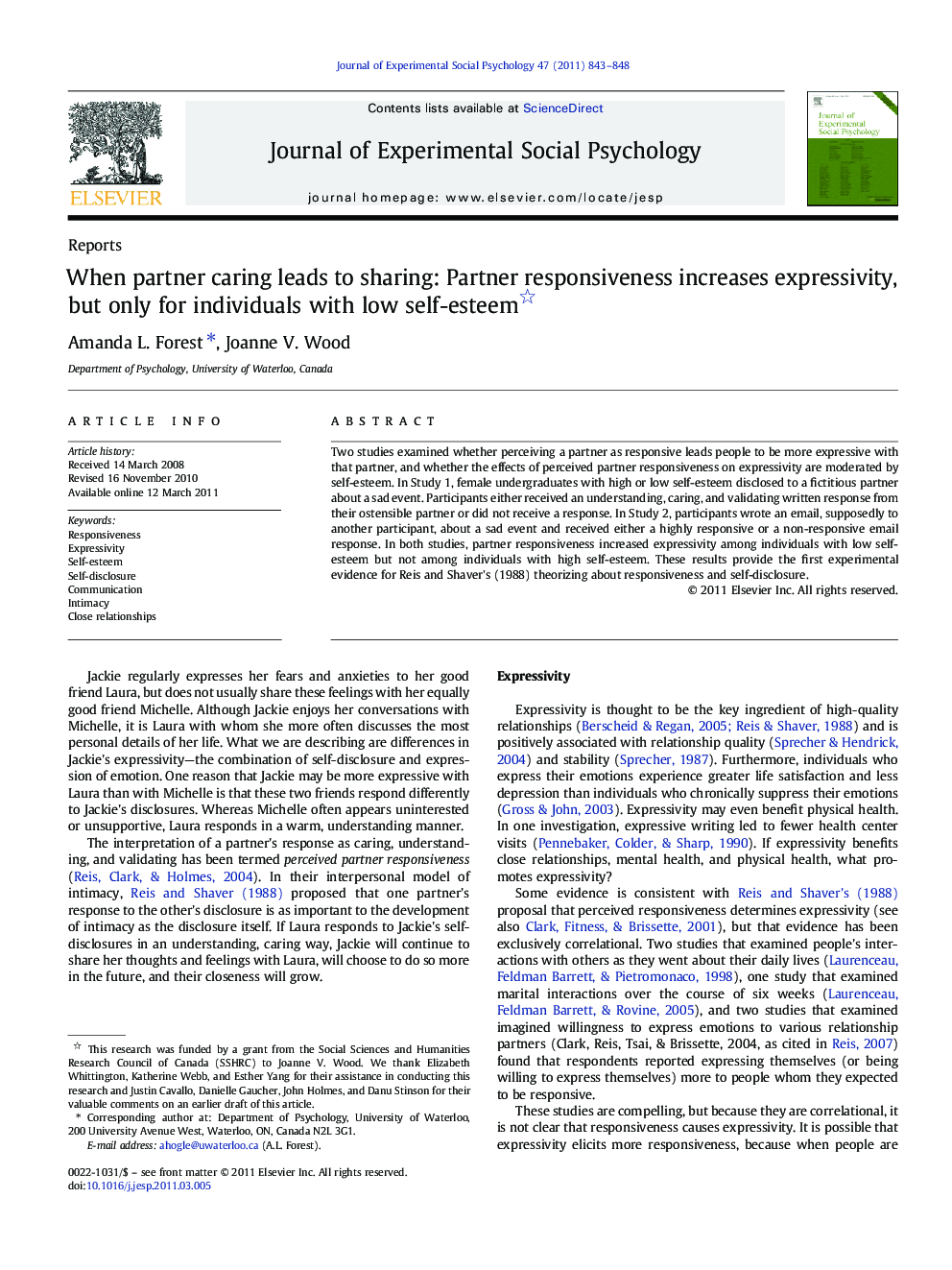| کد مقاله | کد نشریه | سال انتشار | مقاله انگلیسی | نسخه تمام متن |
|---|---|---|---|---|
| 948193 | 926458 | 2011 | 6 صفحه PDF | دانلود رایگان |

Two studies examined whether perceiving a partner as responsive leads people to be more expressive with that partner, and whether the effects of perceived partner responsiveness on expressivity are moderated by self-esteem. In Study 1, female undergraduates with high or low self-esteem disclosed to a fictitious partner about a sad event. Participants either received an understanding, caring, and validating written response from their ostensible partner or did not receive a response. In Study 2, participants wrote an email, supposedly to another participant, about a sad event and received either a highly responsive or a non-responsive email response. In both studies, partner responsiveness increased expressivity among individuals with low self-esteem but not among individuals with high self-esteem. These results provide the first experimental evidence for Reis and Shaver's (1988) theorizing about responsiveness and self-disclosure.
Research Highlights
► We examine whether perceived partner responsiveness increases own expressivity.
► First research to examine this association experimentally.
► First research to examine trait self-esteem as moderator of partner responsiveness.
► Partner responsiveness increases expressivity for people with low self-esteem.
► Responsiveness does not increase expressivity for those with high self-esteem.
Journal: Journal of Experimental Social Psychology - Volume 47, Issue 4, July 2011, Pages 843–848